British Muslims are finding that Umrah, one of Islam’s most sacred pilgrimages, is becoming increasingly expensive. In 2024, over 16.9 million people performed Umrah, setting a record for religious tourism. With more than 14,000 Google searches per month from Brits looking for Umrah solutions, there’s clearly a significant interest in making this spiritual journey more accessible and affordable.
Ufuk Seçgin, a travel expert and cofounder and CMO of Halalbooking.com, has shared comprehensive insights on what to consider when planning your trip. Whether you’re a first-time pilgrim or looking to make your next Umrah more cost-effective, these expert recommendations will help you navigate the planning process with confidence.
Understanding The New eVisa System
Since the Saudi Arabian government introduced eVisas for British passport holders, this has transformed the Umrah planning process. This digital innovation has saved travellers thousands of pounds because pilgrims can now apply online within minutes, without relying on travel agents who often charge substantial fees for visa processing.
The eVisa has been a welcome addition for tourists and pilgrims alike, allowing multiple entries within a year and making it the perfect option for those considering an Umrah trip. This system is part of Saudi Arabia’s broader Vision 2030 initiative, which aims to diversify the economy beyond oil dependence and enhance the tourism sector.
To apply for an eVisa, British citizens need only visit the official Saudi visa portal, upload the required documents (including a passport-sized photo, passport details, and travel information), pay the processing fee, and typically receive approval within 24-48 hours. This streamlined process eliminates the need for embassy visits or postal applications, making the first step of your Umrah journey considerably smoother.
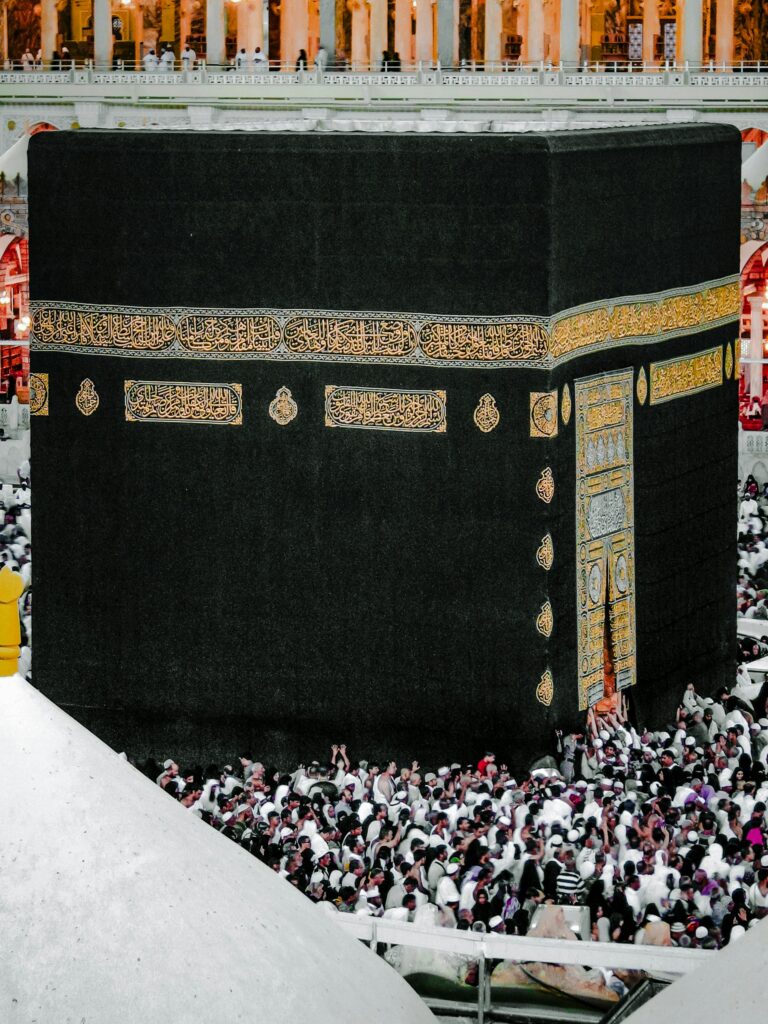
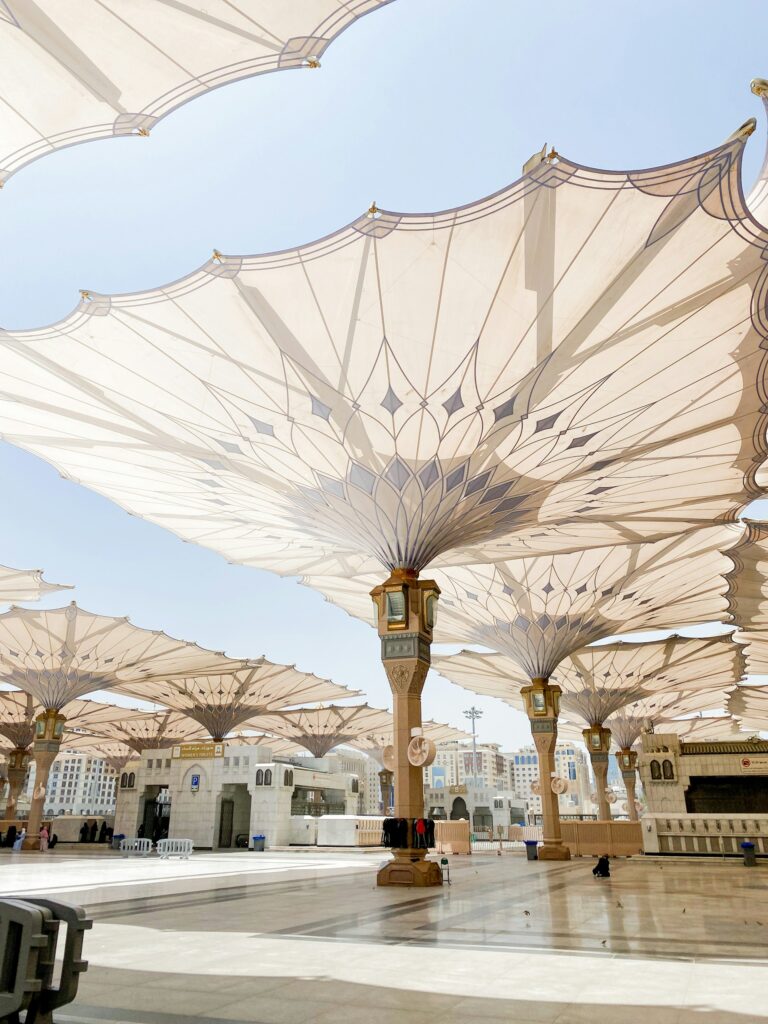
Strategic Timing: When To Book Your Umrah
It is always best to book your hotel and flights as early as possible—ideally 4-6 months before your intended travel date. Many pilgrims think that waiting until the last minute will help them snag a better deal, however, this misconception can lead to disappointment and significantly higher costs.
Booking early ensures you get the best possible deals on flights and accommodation while avoiding the risk of missing out on hotels in prime locations. Airlines typically release their lowest fares months in advance, with prices gradually increasing as the departure date approaches. Similarly, hotels near the Haram offer early booking discounts that disappear as occupancy rates rise.
The timing of your visit also matters significantly. While Umrah can be performed year-round (unlike Hajj, which occurs during specific dates), certain periods are considerably more crowded and expensive. Peak seasons include Ramadan, school holidays, and the months immediately before and after Hajj. If flexibility allows, consider travelling during quieter periods such as Muharram or the middle of Sha’ban, when both flights and accommodation are typically more affordable.
Read: 7 of the world’s most ancient sites
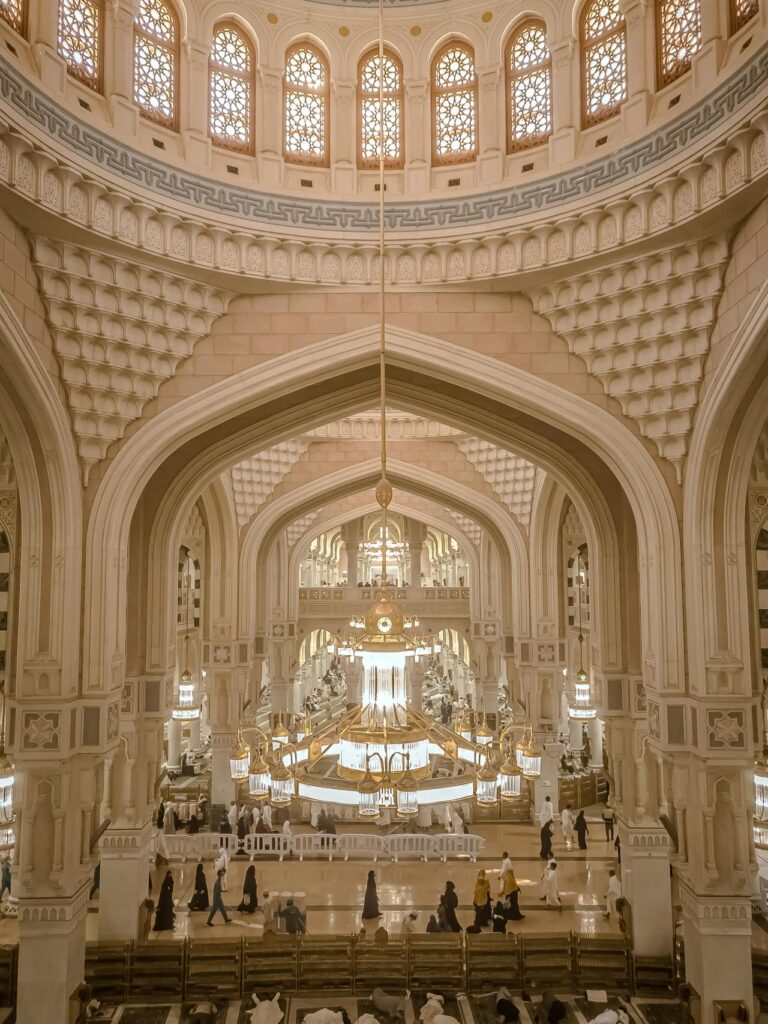
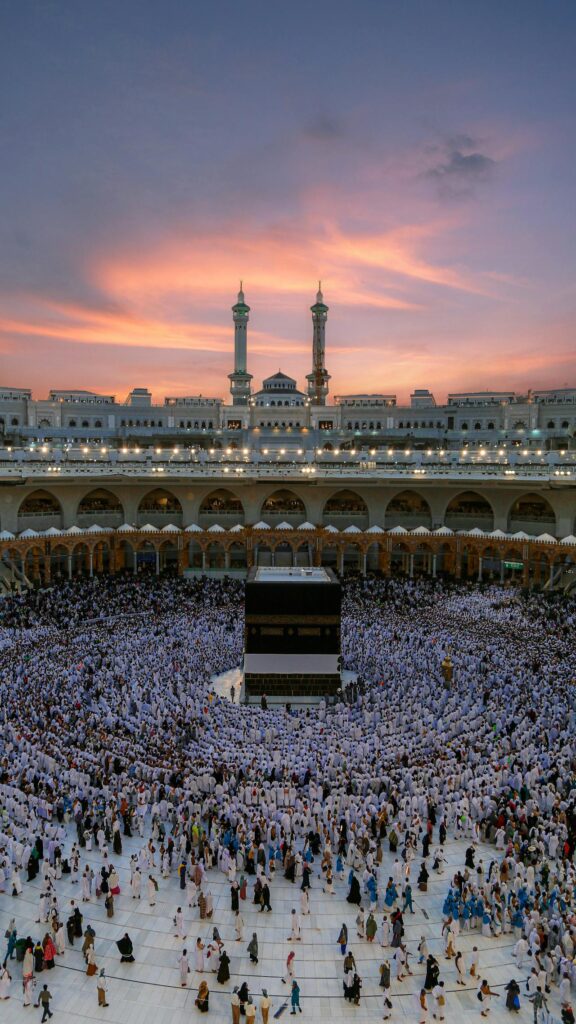
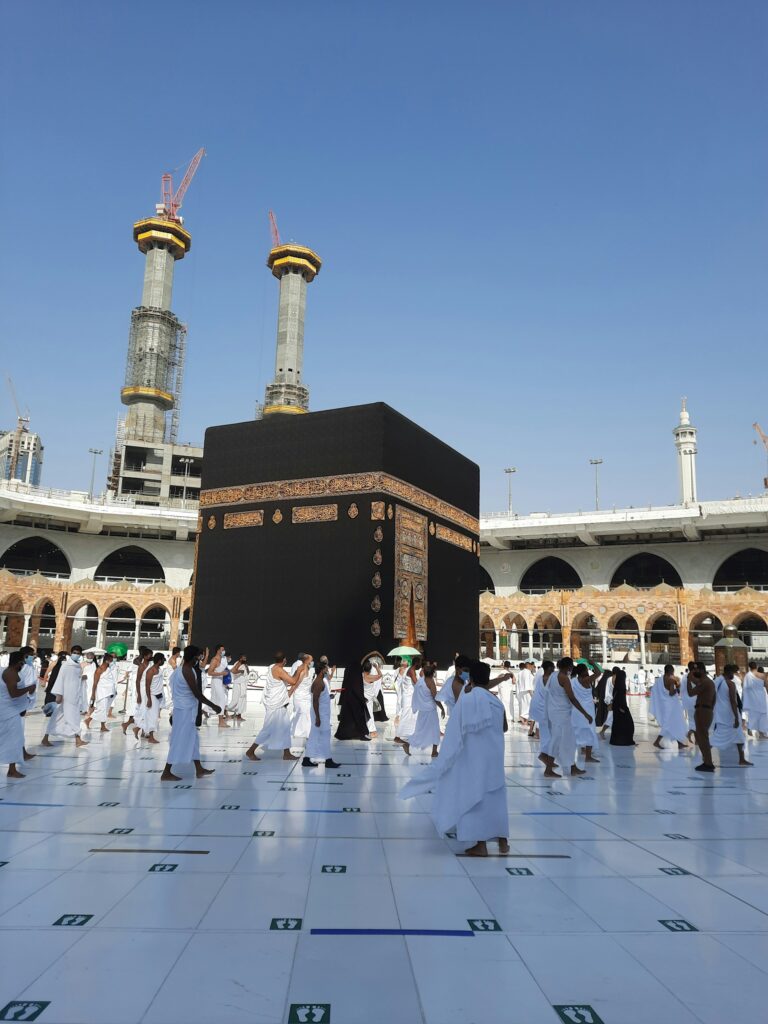
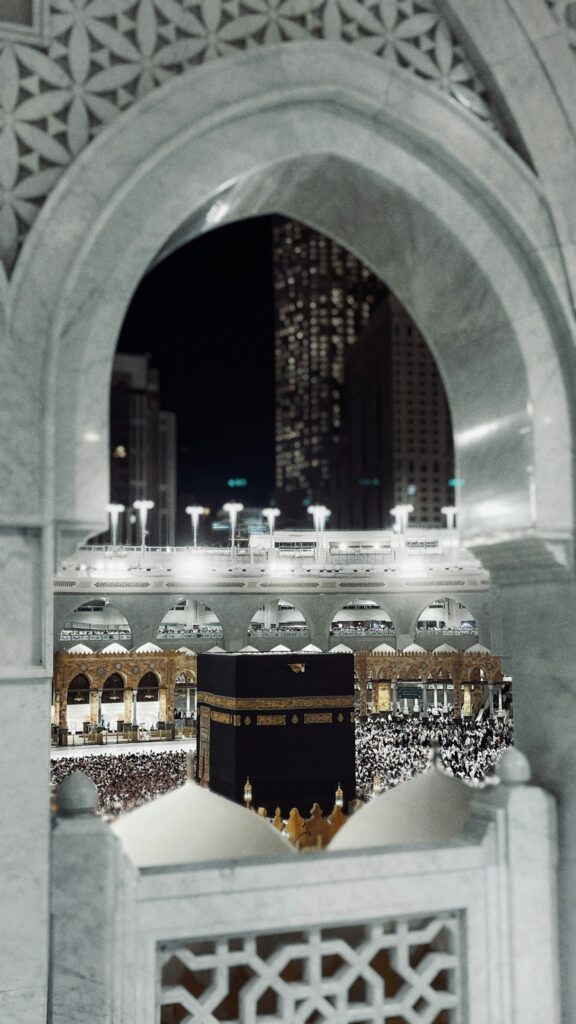
Location Matters: Choosing The Right Accommodation
When it comes to accommodation, proximity to the Haram is paramount. On location, it is important to be as close to the Haram as possible. At peak times, the traffic in and around the Haram can be extremely dense, adding potentially hours onto your journey time.
Booking a hotel near the Haram negates the danger of being stuck in traffic and contributes towards a stress-free experience. So when you’re looking for hotels in Madinah or Makkah, location should be your primary consideration. Halalbooking’s unique Umrah filters allow you to find hotels with Haram view rooms, which can enhance your spiritual experience by maintaining visual connection with the sacred sites.
While hotels closest to the Haram command premium prices, they offer significant advantages beyond convenience. They allow you to perform the five daily prayers at the mosque with ease, provide quick access for additional Tawaf (circumambulation of the Kaaba), and reduce the physical exertion of walking long distances in what can be challenging weather conditions.
For those on a tighter budget, consider hotels within a 10-15 minute walking distance, which offer a reasonable compromise between cost and convenience. Some visitors also opt for apartments rather than hotels, particularly for family groups, as these can provide more space and self-catering facilities at a lower cost per person.
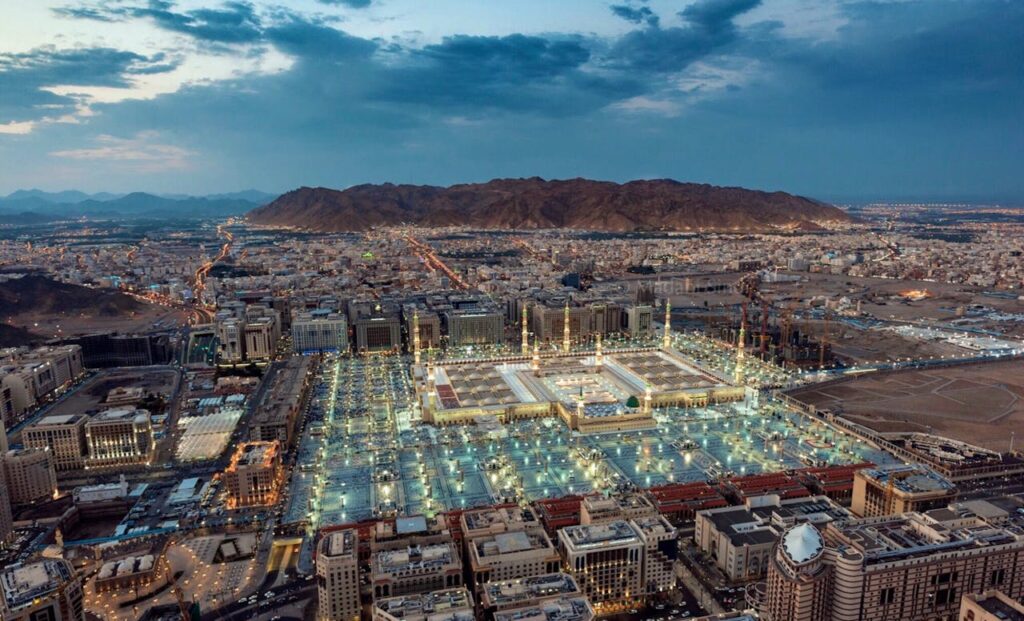
Packing Essentials: What To Bring On Your Umrah Journey
When packing for Umrah, it can be difficult to know what to bring, but there are certainly some essentials you shouldn’t forget. For men, the Ihram garments—two simple, seamless white cloths—are the most critical items. These must be worn during the Umrah rituals and should be packed in your hand luggage in case checked baggage is delayed.
Other essentials include:
- A light, portable prayer mat for use during travel
- Comfortable, durable sandals or slip-on shoes that can be easily removed when entering mosques
- A refillable water bottle for Zamzam water, which pilgrims typically collect and consume during their stay
- Modest, lightweight clothing suitable for the local climate (which can be extremely hot)
- Basic medications, including pain relievers, anti-diarrhoeal medicine, and any prescription medications
- A small umbrella or sun hat for protection from the intense sun
- Unscented toiletries and hygiene products (as scented products are prohibited while in a state of Ihram)
Make sure you download the Nusuk app, which has become an indispensable tool for pilgrims. This official application allows you to book an Umrah permit, view prayer times, navigate the holy sites, and access emergency services if needed. Some pilgrims also find it helpful to download offline maps of Makkah and Madinah, translation apps, and Quran applications for reference during their journey.
DIY Umrah vs. Package Tours
Whilst some find packages convenient, they can feel impersonal and restrict your freedom to travel when and where you want. If you plan your own DIY Umrah trip, you can make time to discover hidden gems, such as the Cave of Hira, Jannat al-Mu’alla (where many members of the Prophet’s (pbuh) family are buried), and the newly opened museums in Makkah and Madinah.
A DIY approach gives you the flexibility to:
- Choose flight times that suit your schedule rather than being constrained by group bookings
- Select accommodation based on your specific preferences and budget
- Extend your stay or change locations without being tied to a fixed itinerary
- Visit additional sites beyond those included in standard package tours
- Dine at restaurants of your choosing rather than being limited to hotel buffets
The Bottom Line
Opting for a DIY Umrah experience in Saudi Arabia can save pilgrims hundreds of pounds, but it’s important to make sure everything is planned meticulously so you can travel without stress. The introduction of eVisas has made the process significantly more accessible for British Muslims, opening up opportunities for more frequent and affordable spiritual journeys.
By booking early, choosing accommodations strategically, packing appropriately, and leveraging local travel options, pilgrims can create a more personalised and cost-effective Umrah experience. The spiritual benefits of this sacred journey are immeasurable, and with careful planning, the logistical and financial aspects need not be overwhelming.





